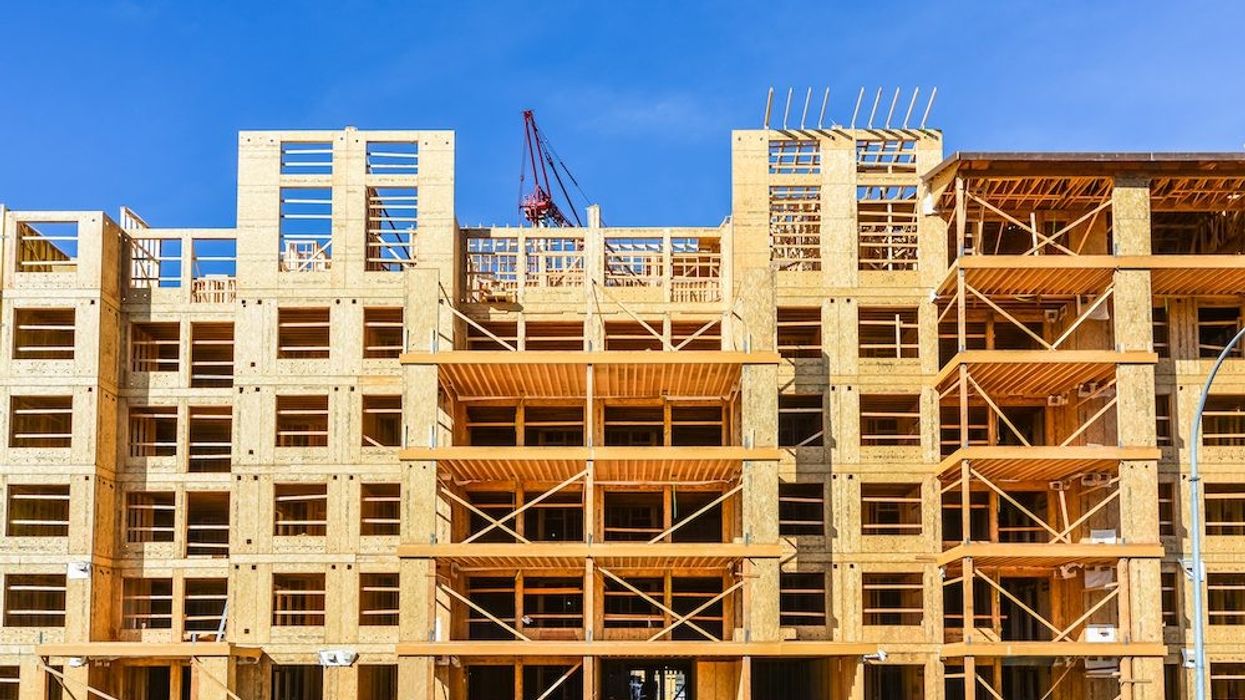Builders, the province, and construction industry stakeholders are trying to figure out how to get much-needed new housing stock to market faster in the City of Toronto. But it’s an uphill battle as the municipality seems intent on taking action that makes it more expensive to build homes and condos.
First, city council accelerated its plan to reduce community-wide greenhouse gas emissions in the city to net zero by 2040 – 10 years earlier than initially proposed. This, in turn, pushed forward the previously established Toronto Green Standard implementation timelines, increasing costs to build.
Second, a revised Toronto Foundation Drainage Policy went into effect in 2022. The policy eliminates groundwater discharge to the sewer system, which necessitates “bath-tubbing” of underground parking garages, again adding to the costs of high-rise building construction which are passed on to end users.
Now, the city is looking at increasing development charges on new residential builds by a whopping 49%. A background study by consulting firm Hemson is proposing the increase to pay for capital projects that will be needed in anticipation of population growth of 3.2M by 2031.
READ: Builders Sound Alarm as Toronto Proposes Huge Increase to Development Charges
The amendments are poised to go to Toronto’s planning and housing committee and then on to city council.
Higher Fees Will Get Passed Down to Homebuyers
Development charges are imposed on new housing and infrastructure to help pay for capital costs to service new development and are based on the principle that growth pays for growth. The city also receives funds through Community Benefits Charges and The Alternative Parkland Dedication Rate. Collectively, the three generate about $750M in annual revenue for the city.
Developers have always paid their fair share of charges. However, the weighty new fees being proposed are exorbitant and ludicrous. To offset costs, developers will have little choice but to increase prices and rents. Ultimately, it will mean that housing and apartments will be much more expensive.
Such charges could also deter development at a time when we are in dire need of new housing. Missing middle or infill housing will be particularly hard hit as higher charges would make projects impractical.
Unlike property taxes, development charges are easier to hide from the public. I’m not sure buyers are aware of how much these fees actually add to the cost of a new home or condo, but it’s a lot.
The new study proposes that the DCs on single and semi-detached homes rise to $139,830 from $93,978. The proposed charge for multiples with two bedrooms or more would rise to $115,579 from $77,679, and for multiples with less than two bedrooms the fee would rise to $57,976 from $38,968.
The charge for an apartment with two bedrooms or more would rise to $81,852 from $55,012, and for an apartment with fewer than two bedrooms it would rise to $53,432 from $35,910.
Development charges for a single detached home were $12,366 in 2009, so we are looking at an increase of more than 1000% since then.
Developers will be forced to raise the price of new housing. In the end, new home buyers -- those who can least afford it -- will end up having to foot the bill.
We’ve been through unprecedented times lately and a difficult economic recovery. COVID-19 took its toll and slowed the building industry. The pandemic added myriad challenges and now we have material shortages, supply chain disruptions and, more recently, strikes. This is another headache the building industry simply does not need.
A Contradictory Proposal
A Housing Affordability Task Force came up with 55 sweeping recommendations aimed at getting 1.5M homes built in Ontario over the next decade. Raising development charges flies in the face of those proposals.
The average price of a home in the GTA now stands at nearly $1.3M. At that price, most working people can no longer afford to buy a new home. Rents are also going up.
We are in desperate need of new housing. Presently, Canada has the fewest housing units per person in the G7, according to a Scotiabank study done in 2021. Two thirds of the national shortage is in Ontario.
Raising development charges will only make matters worse. If passed, developers will have to look elsewhere to build, which certainly won’t help Toronto’s housing problem.
Such hefty fee hikes are illogical and defy rational behaviour. They must be nipped in the bud by council.





















